Life in a Roma settlement at the edge of the European Union
The chapters
A series of case studies profiling Ukraine’s excluded Roma population.
- 01
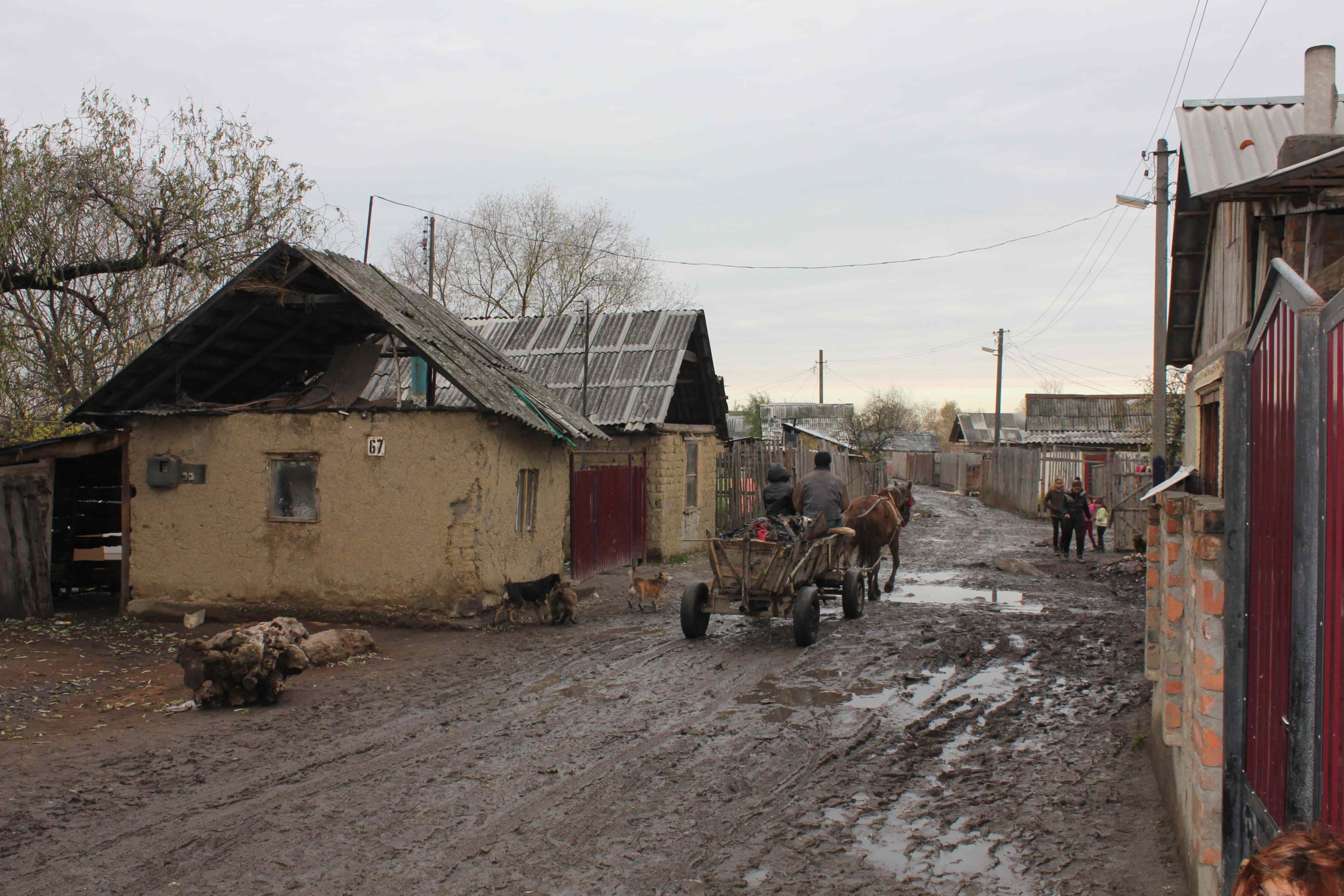
Photo story: The settlement on the outskirts of Berehovo
Around 7,000 Roma have been living for some 60 years in a settlement on the outskirts of Berehovo, a town that lies in Ukraine’s Zakarpattia region, just a few kilometres from the edge lands of the EU, where the country abuts the borders of…
0 min read
- 02
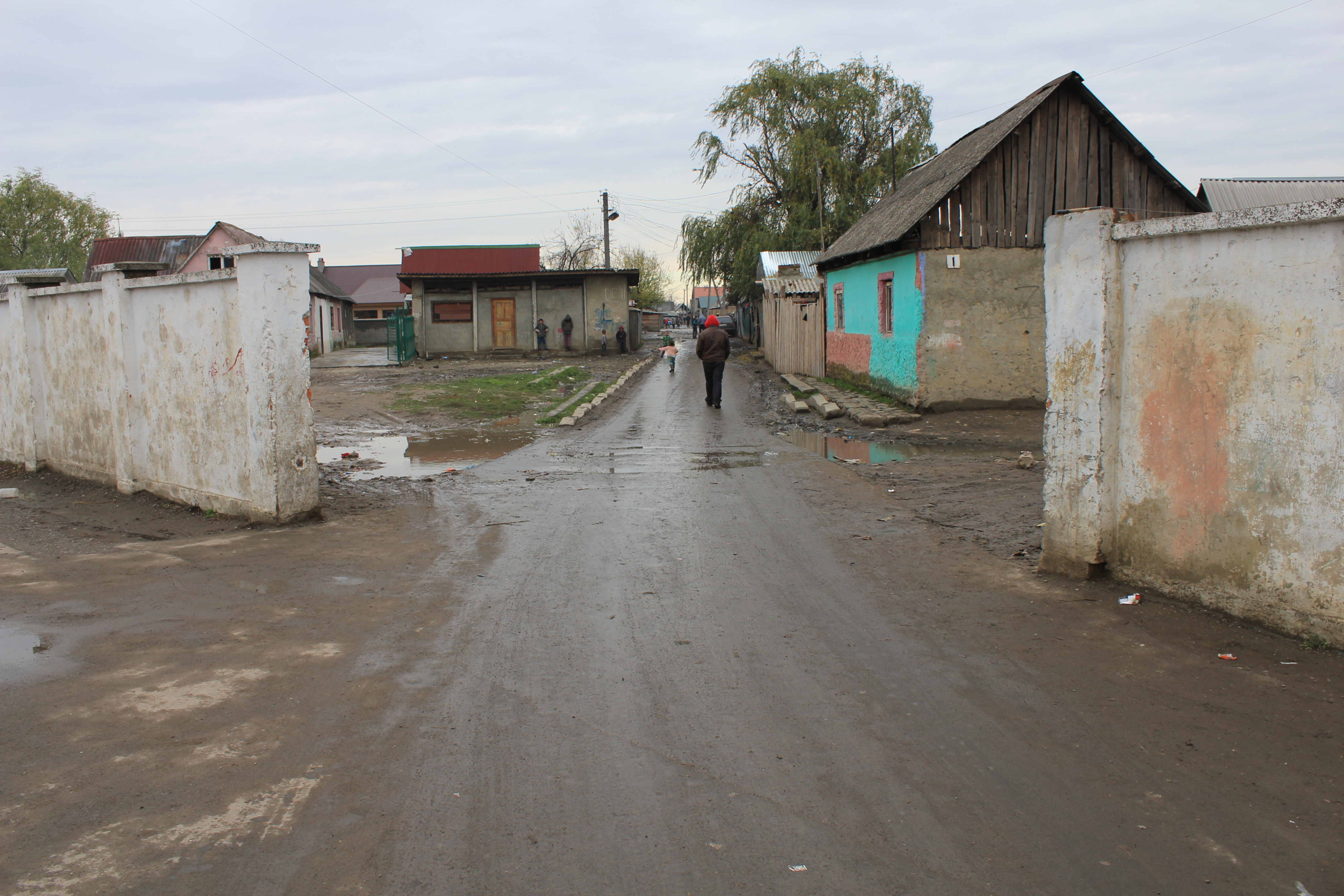
Not just a health worker…
Olena works as a nurse employed by Berehovo municipality to attend to the basic health needs of Roma who live in a settlement on the edge of the city. She is also a Roma mediator, employed by MRG’s partner in Ukraine, Chirikli, and funded…
0 min read
- 03
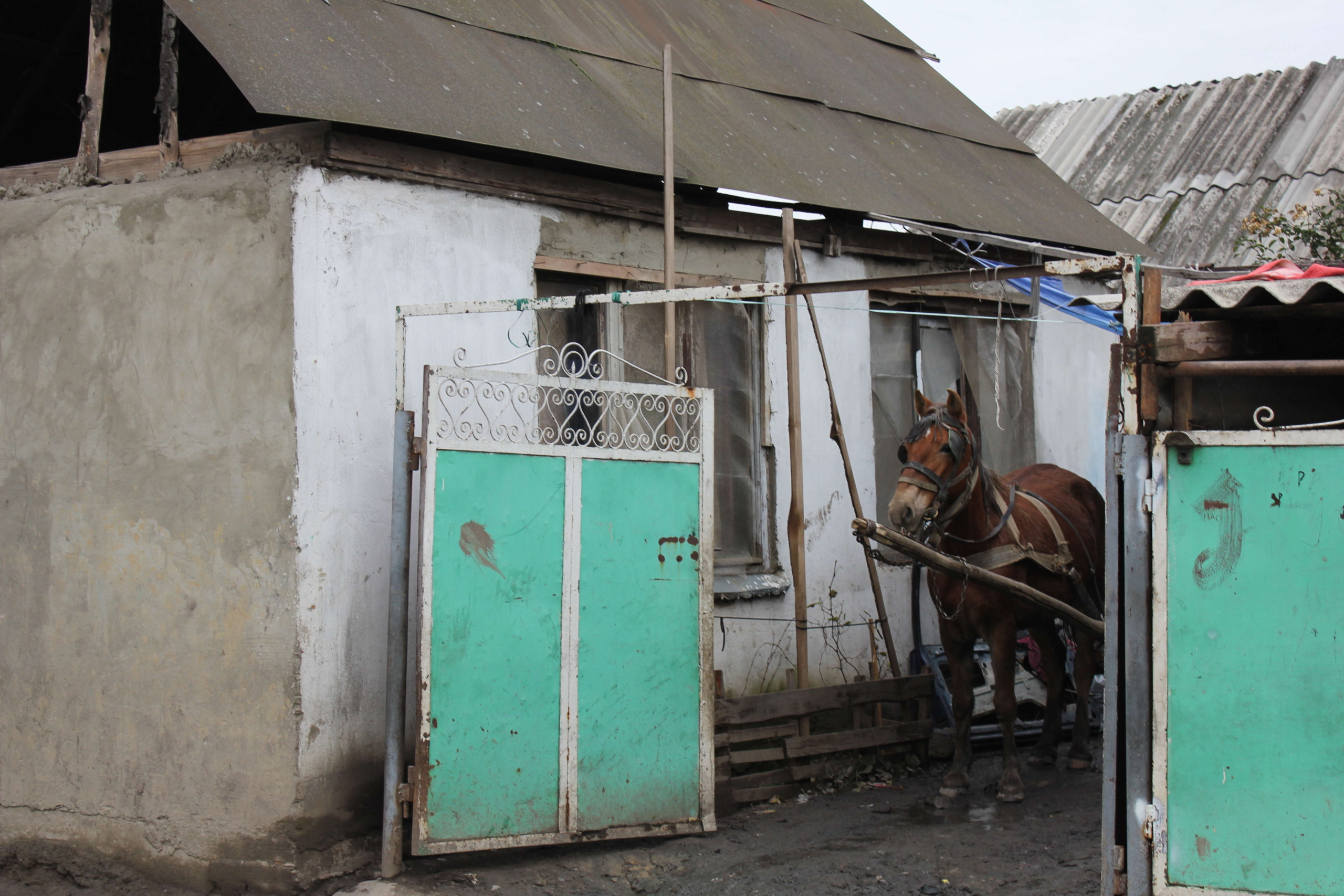
‘I just want to improve their lives.’
Valeria is the first young Roma woman to be elected to Berehovo City Council. At 28, she has held the position of councillor for her district for almost three years, along with the only other Roma council member in the city, who is a…
0 min read
- 04
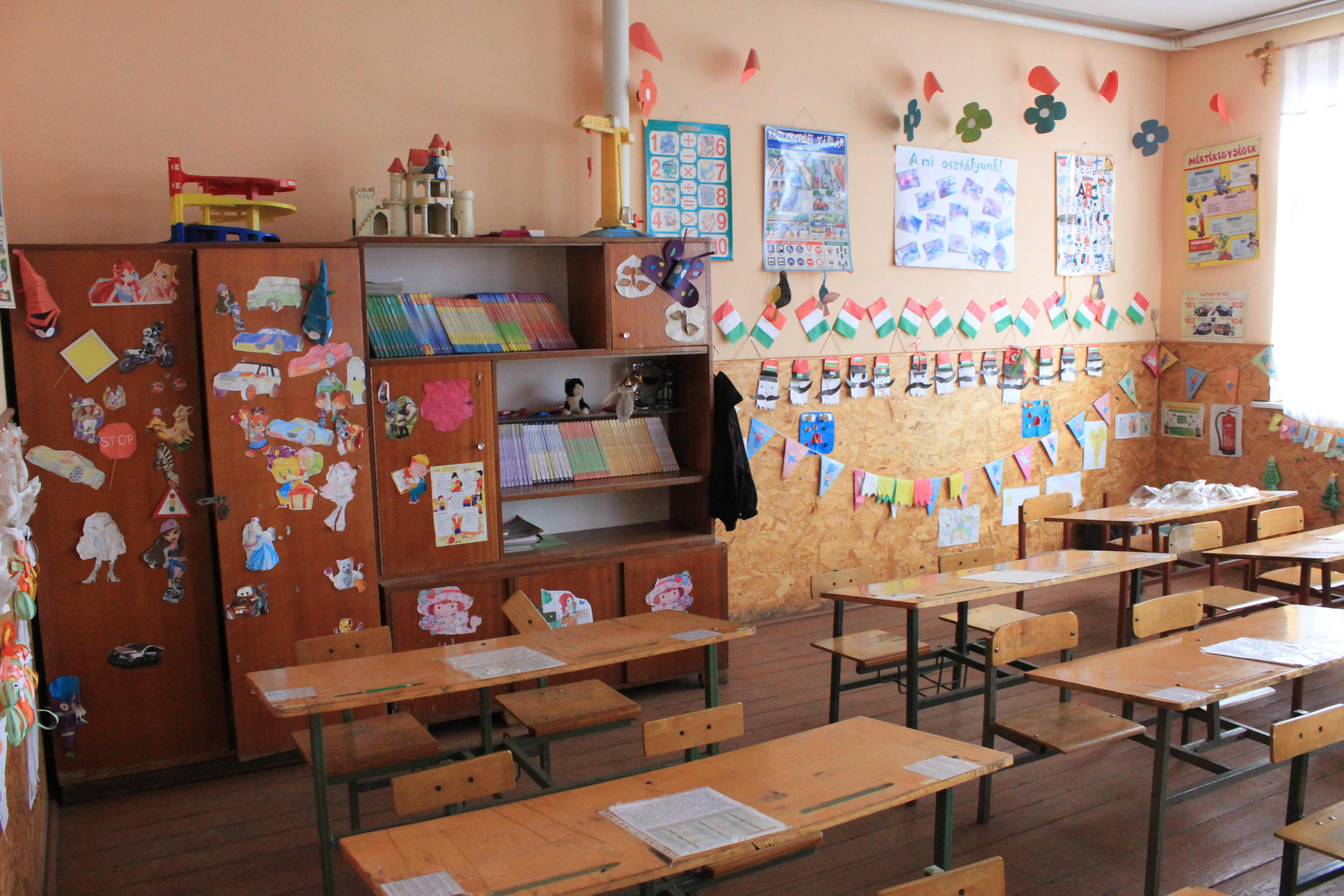
A very committed school
I’d been told about a school № 7 in Berehovo, where all of the students are Roma, the majority from the nearby settlement I had just visited, and so stopped by to see for myself. On entering the foyer I was given a warm welcome by the…
0 min read
-

Around 7,000 Roma have been living for some 60 years in a settlement on the outskirts of Berehovo, a town that lies in Ukraine’s Zakarpattia region, just a few kilometres from the edge lands of the EU, where the country abuts the borders of Hungary, Romania and Slovakia.
As I entered the settlement accompanied by Olena, a Roma mediator employed by Chirikli, MRG’s partner in Ukraine, it was hard to shrug off the sensation that I was entering a ghetto. Could it have been the high wall that masks it from the surrounding community, or perhaps the paved road that runs out after just a few metres and gives way to ankle-deep mud?
Unfortunately, I’m told these conditions are typical for many Roma communities throughout Ukraine – segregation, lack of infrastructure, under-development, long-term neglect by the local authorities.
Thank you to the residents of the settlement who allowed me into their homes, gave consent for MRG to publish these photos and allowed us to expose the incredibly tough conditions they face on a daily basis, made all the more stark by their close proximity to the border with Hungary.

The entrance to the settlement. 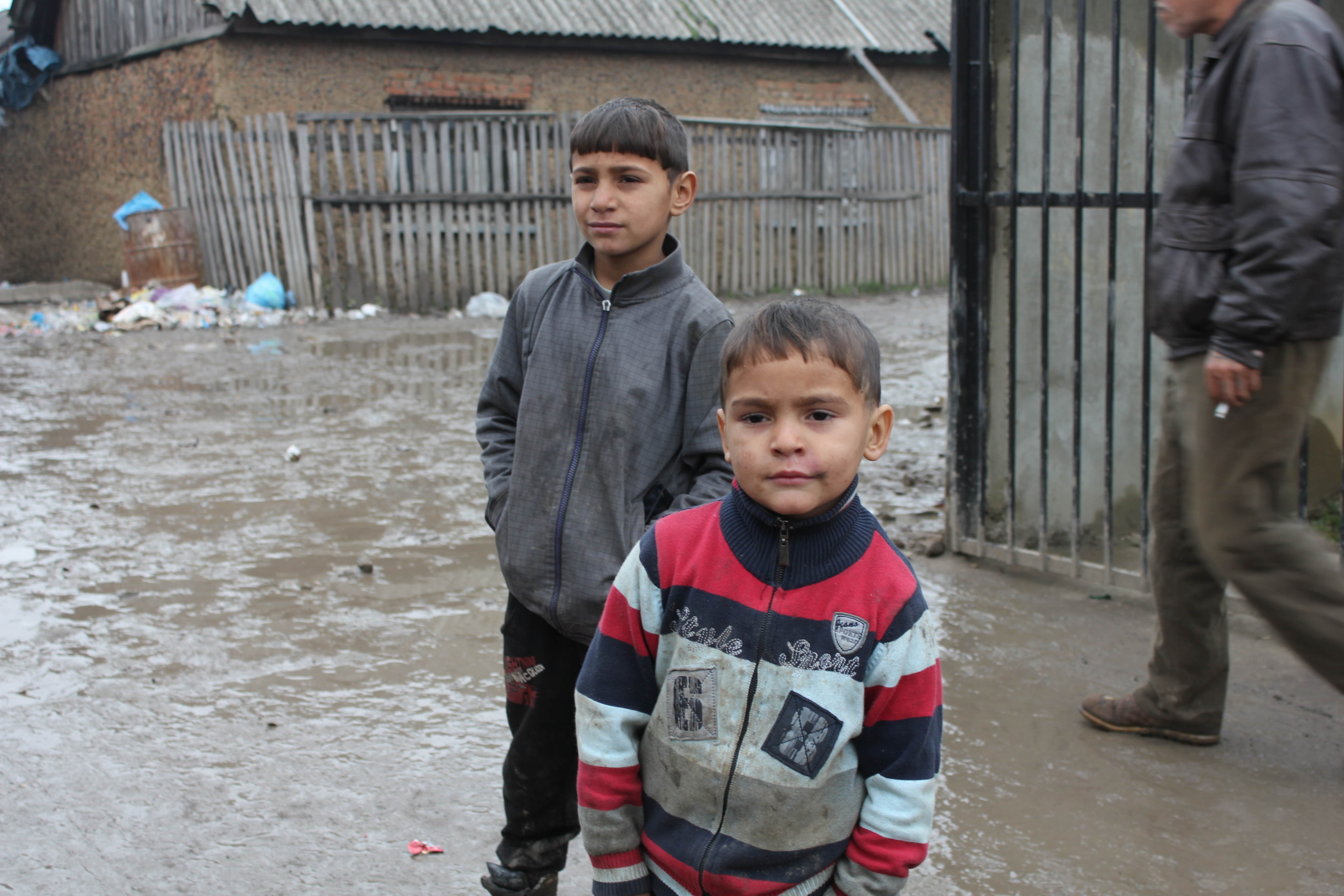
On the day I visited, most of the people we encountered on the street were children. 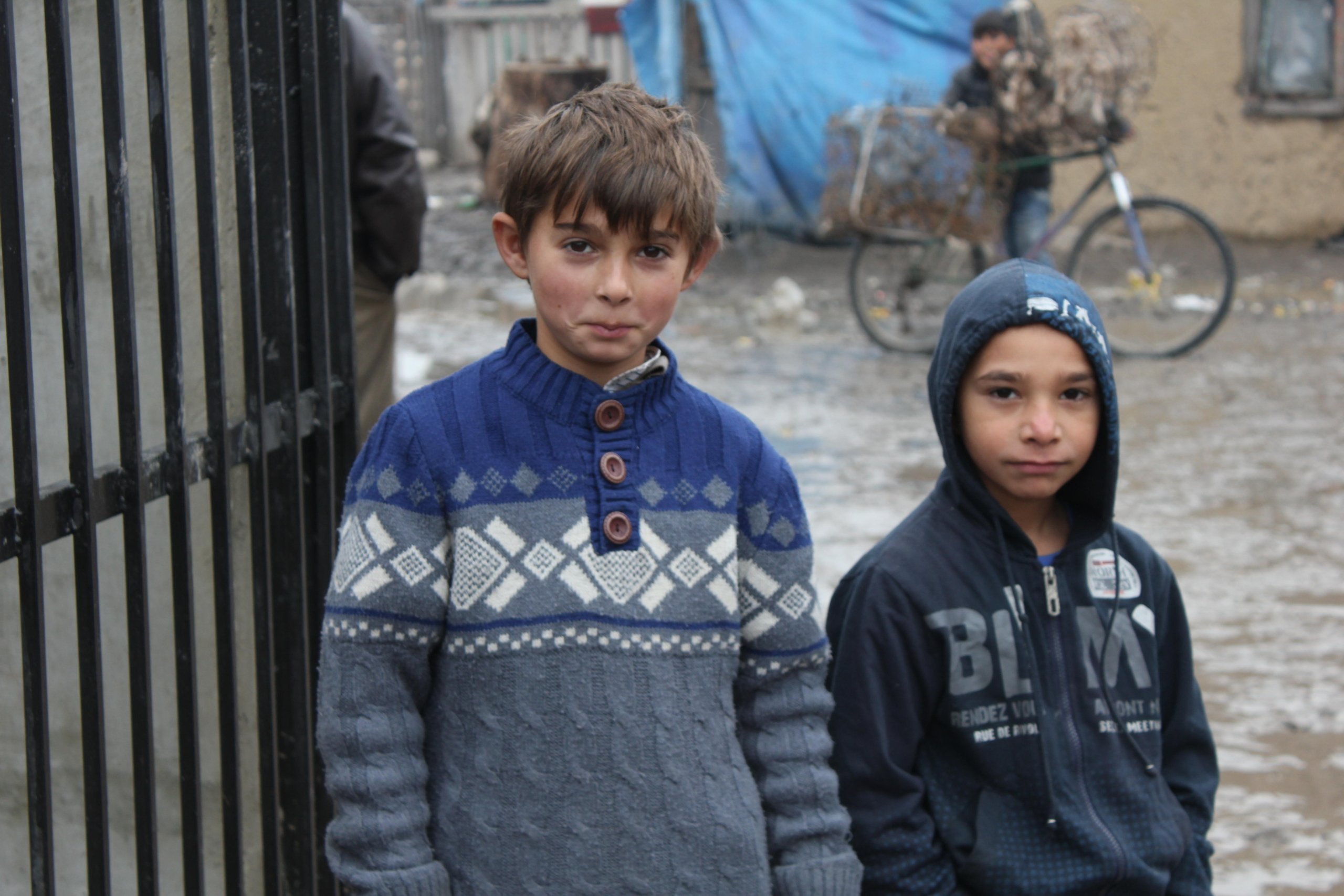
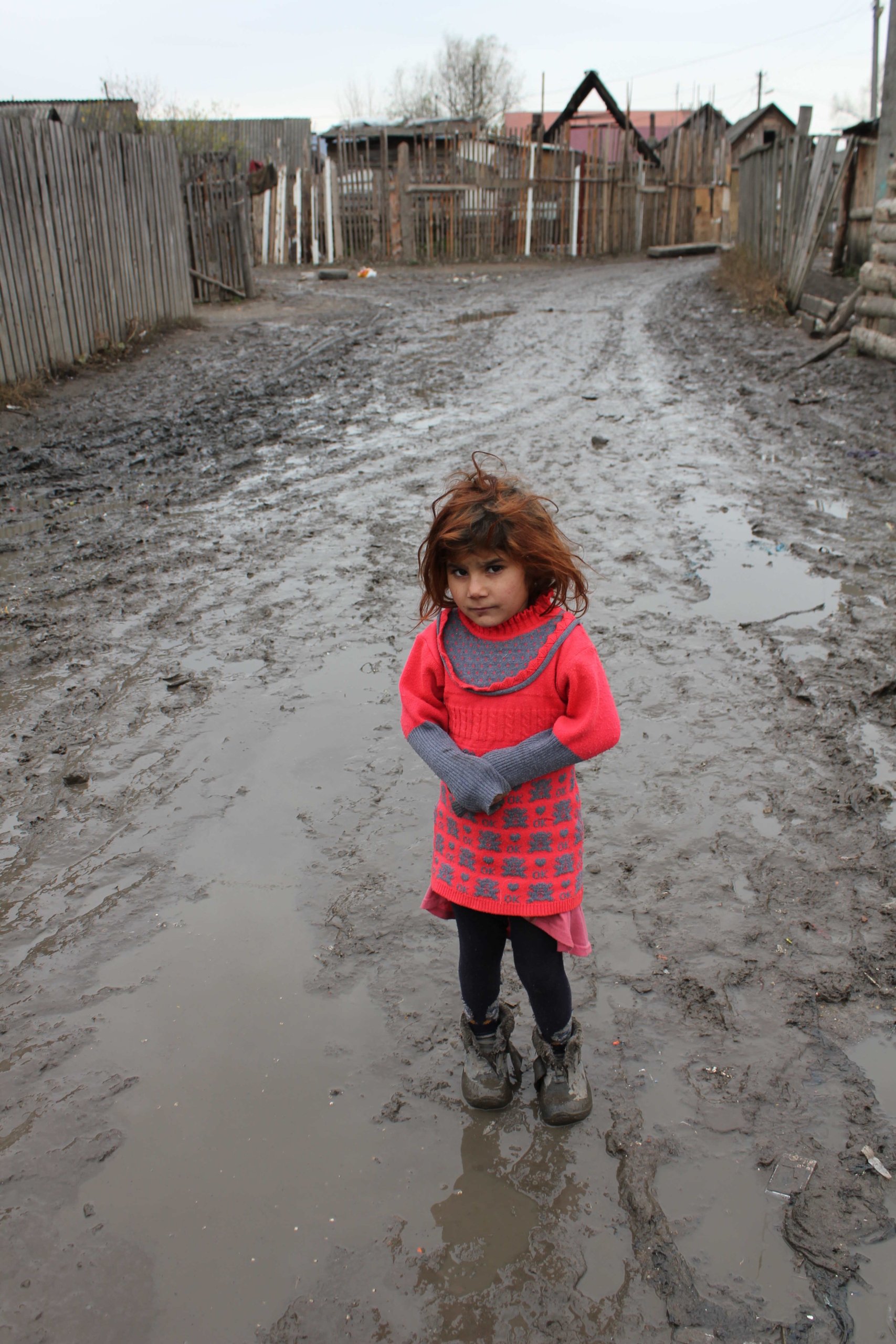

Roma use horses and carts as a means of transporting goods in this region. 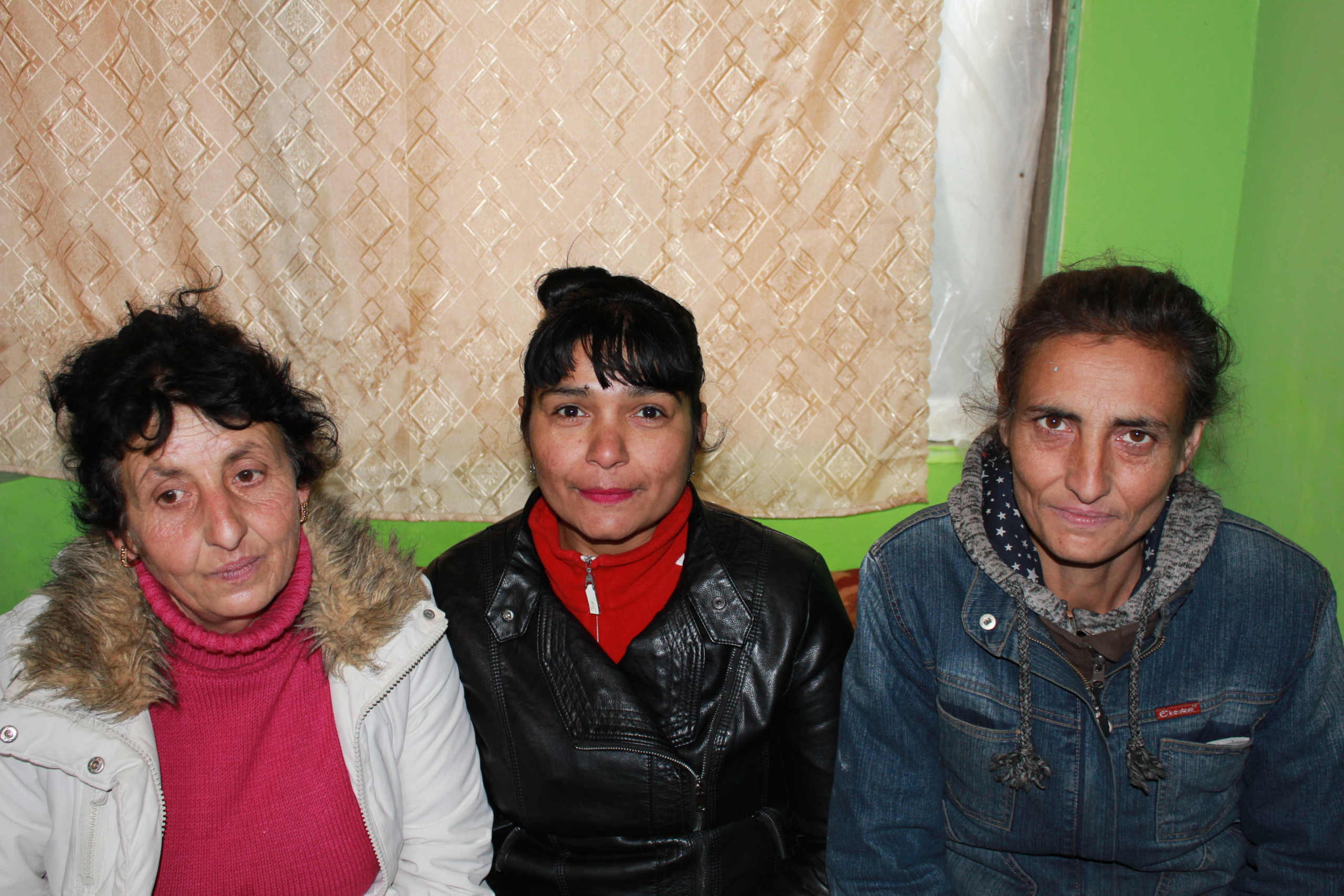
Iboya (L) is a grandmother who supports her extended family by working as a cleaner, both in the local school and in a pharmacy. She has always lived in the settlement but says she would like to move. 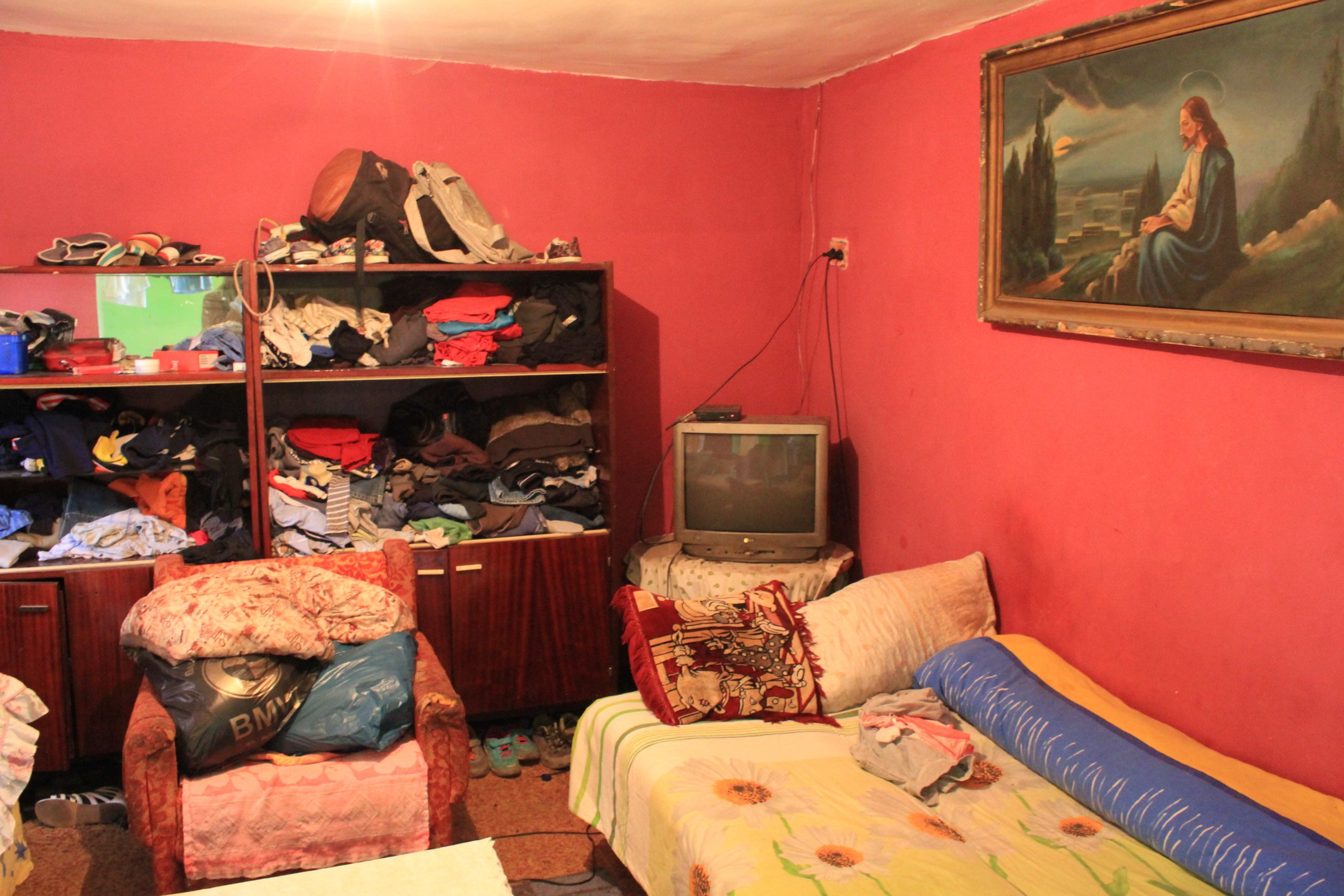
Three generations of her family live in this one room. Like almost everyone in the settlement, they have no running water in the house and have to use a standpipe in the street and a rudimentary latrine dug into the mud just outside the front door. Electricity is intermittent, whilst the only heat comes from a burner that they feed every now and again with sawdust. According to the Constitution of Ukraine, all people have equal rights to access to water and adequate housing. 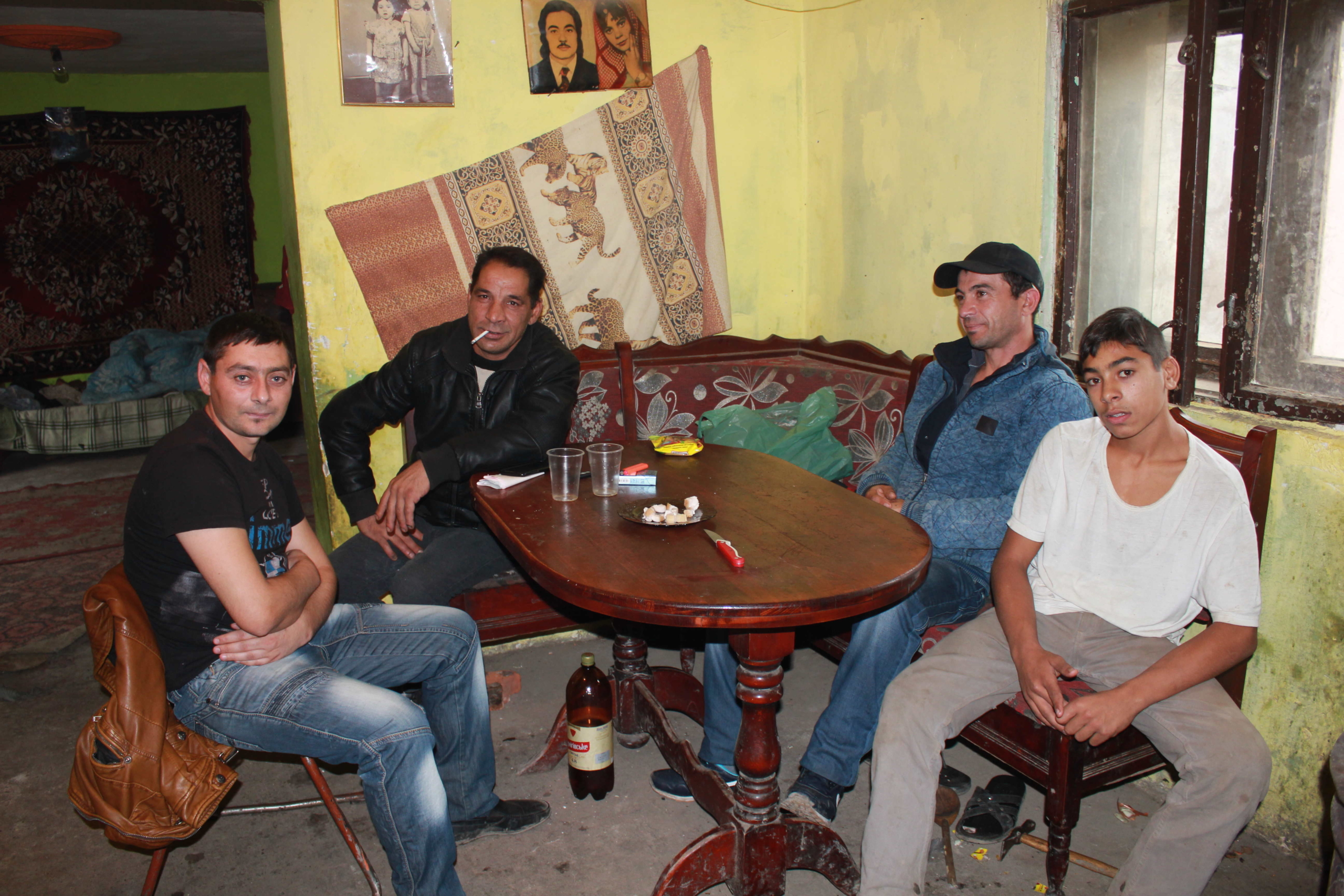
Ludovic (L) looks after his four very young children alone as his wife is in the capital, Kiev. He says he can’t afford to go and see her regularly as he has to concentrate on taking care of his kids and was keen to show us that his children were happy and healthy. 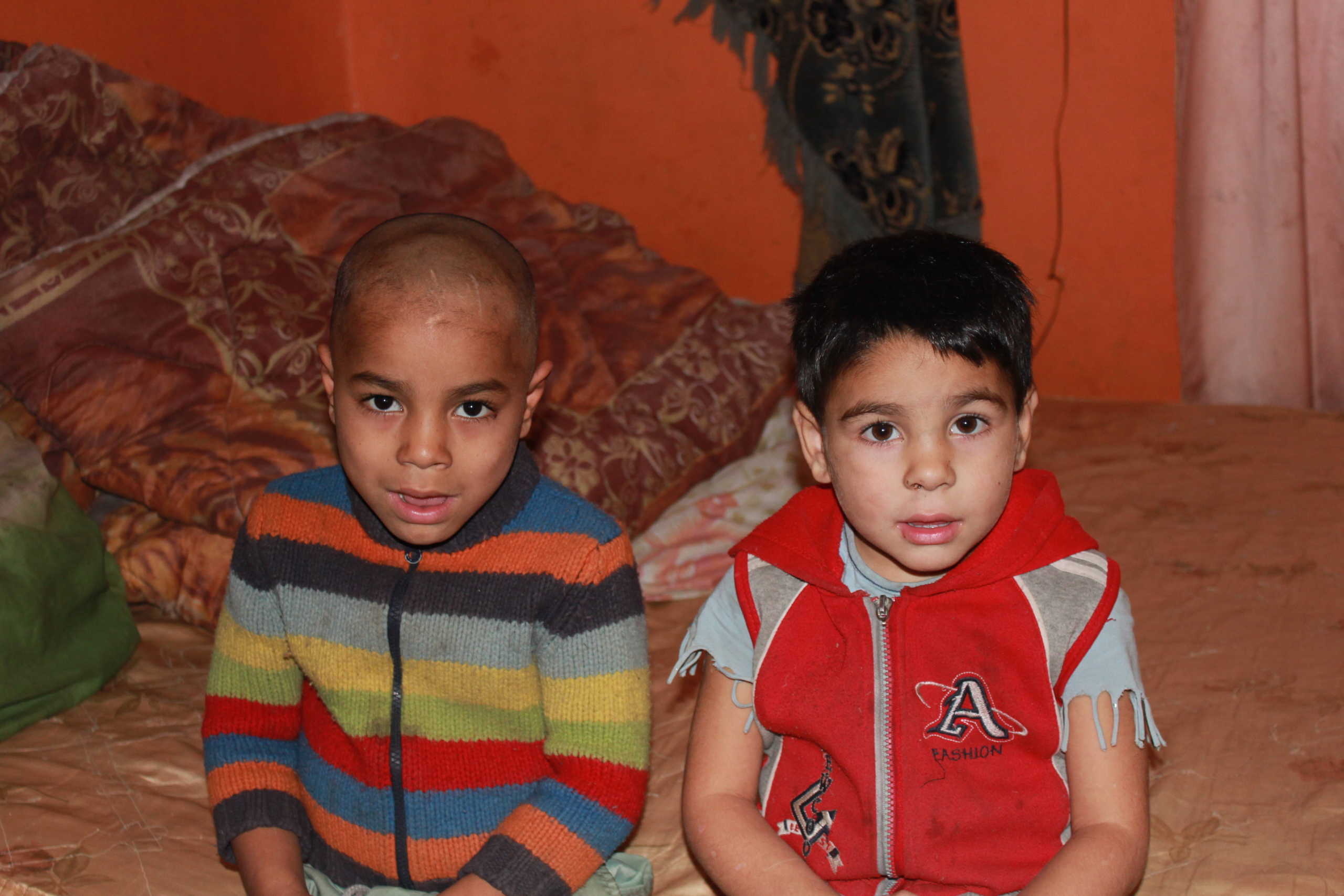
Two of Ludovic’s children. 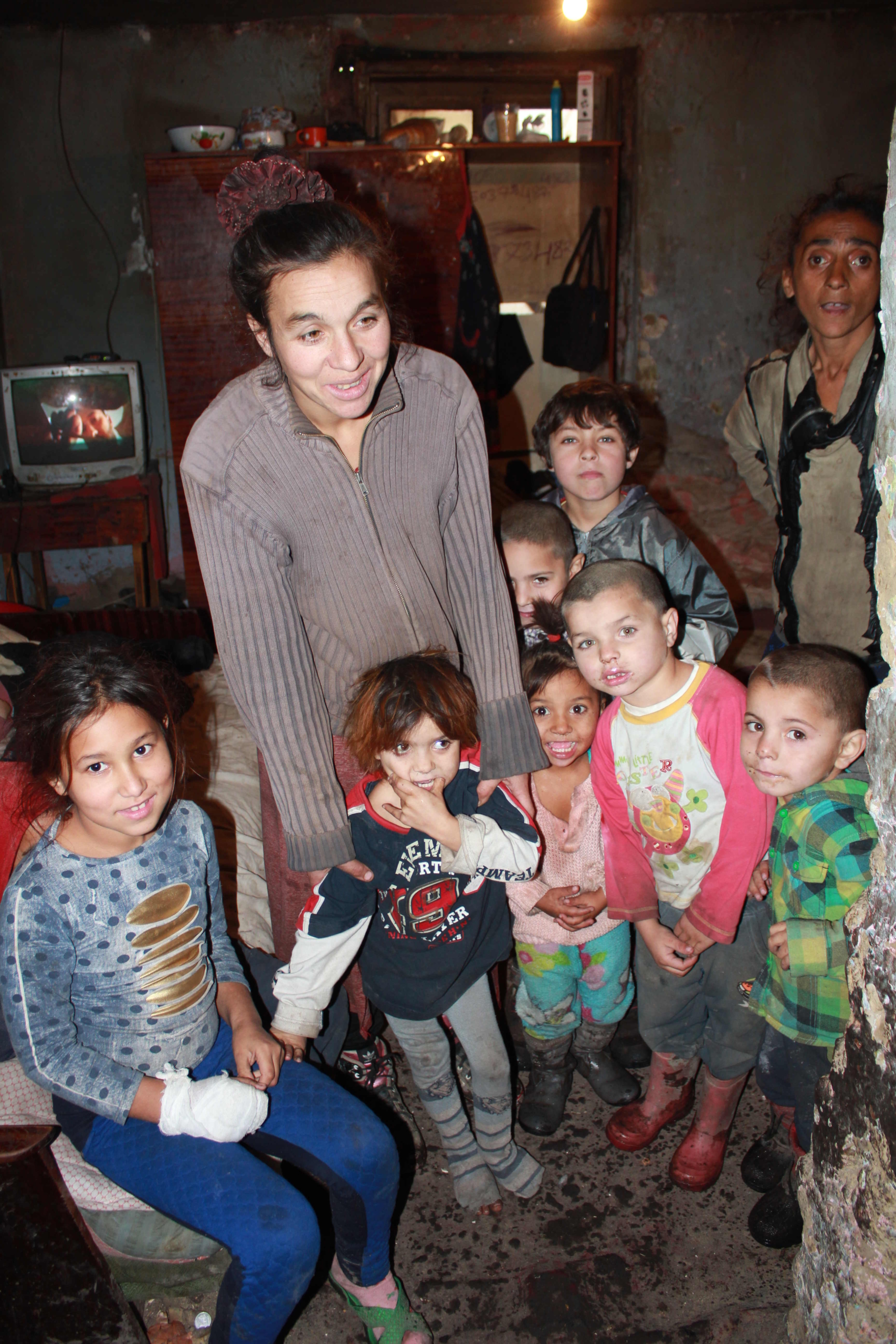
Neighbours Ildiko and Ludmilla (the two adults in the photo) were extremely concerned for the health and welfare of their children. They both live in houses with mud floors, one of their children has a physical disability that makes it difficult for her to walk and they barely have enough money to buy milk for the younger ones. -
Olena works as a nurse employed by Berehovo municipality to attend to the basic health needs of Roma who live in a settlement on the edge of the city. She is also a Roma mediator, employed by MRG’s partner in Ukraine, Chirikli, and funded by our EU programme. It is an innovative set-up pioneered by Chirikli, where trusted locals, most of whom are Roma themselves, act as bridges between national and international NGOs and Roma community members across the country.

Whilst I was there in Olena’s warm but very modest clinic, just a stone’s throw from the entrance to the settlement, she was visited by a number of women who brought their small children for reassurance about health concerns, or for her to carry out routine tasks such as giving injections.
Tuberculosis is common, and worryingly on the rise in the settlement according to Olena, along with other ailments such as bronchitis and pneumonia, which are typical in conditions of extreme poverty, but shocking in places like Berehovo, just a few kilometres from the EU border.
Olena is not Roma herself, and lives in a side street close to the clinic. As she picked her way in all too flimsy shoes through the ankle-deep mud of the settlement’s streets, everyone seemed to know her and wanted to chat, often calling her over to their houses. Without her my visit to the settlement would have been impossible, and the affection and trust afforded her, especially by the Roma women, was palpable, as was her concern and compassion for their health and welfare.

-
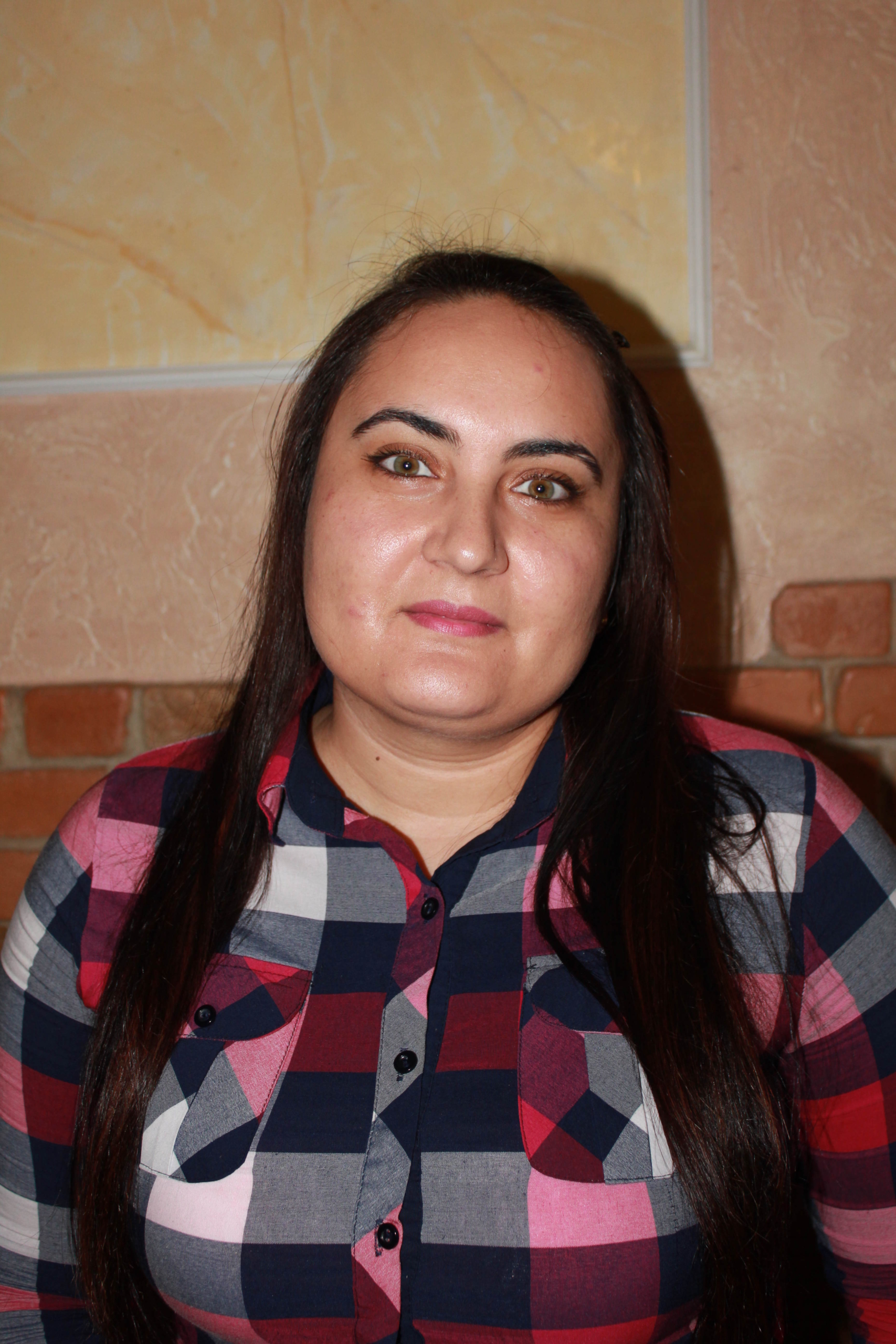
Valeria is the first young Roma woman to be elected to Berehovo City Council. At 28, she has held the position of councillor for her district for almost three years, along with the only other Roma council member in the city, who is a man.
Unlike the majority of Roma women in Ukraine, and in many other countries in Europe, Valeria went to university, in the city of Ternopyl. On her return, she decided to use her education to try to do something to improve life for her community, many of whom voted for her and live in a settlement on the outskirts of the city on the outskirts of the city in abject conditions. She says, ‘It was difficult to see how they lived. I needed to try and do something about it.’
When I asked her what that means in reality, she told me that one of the main problems for Roma in the city is lack of official ID papers. This was a recurring theme during my visit . . . without papers, Roma can’t work or travel officially, or access adequate healthcare or education. Significant numbers of Roma in the Zakarpattia region where Berehovo lies were born in the Russian Federation, and don’t have access to their original birth certificates, whilst many uneducated Roma women fail to register the births of their children in the city. Without a birth certificate, Roma citizens simply don’t exist and are forced even further to the margins of society.
Valeria spends much of her time helping Roma trawl through the bureaucratic labyrinths and engages with the authorities in order to gain the all-important papers, making photocopies for them and arranging meetings with lawyers, often using her own money and staying up all hours to make sure her constituents get what they need. She doesn’t get paid as a councillor, so works as an accountant to make ends meet, and her young husband, who was silently present throughout our meeting, works three jobs to support their family.
Yet she too has faced discrimination and hardship: for her gender, for being Roma, from other councillors and from within her own community. I asked her how she found the energy to continue, despite the many obstacles.
‘I trust in God. I am a religious person. I’m also heartened by the fact that I won this election, without bribes, although I had many opponents. I won because many people in my community trust me. I just want to improve their lives.’
-
I’d been told about a school № 7 in Berehovo, where all of the students are Roma, the majority from the nearby settlement I had just visited, and so stopped by to see for myself. On entering the foyer I was given a warm welcome by the enthusiastic headmistress, Agnesa Kudron, dressed in a stylish green tweed skirt suit and brown fur boots. She gave me a detailed tour of the school buildings, and proudly told me about the work they do educating and nurturing local Roma children at both primary and secondary level.
I was instantly taken back to my own primary school in a mining village in the north of 1970s England. No computers or whiteboards in sight, rows of individual wooden desks, dog-eared but colourful workbooks, children who stood up and cordially greeted the headmistress whenever she walked into the room. The place had a caring, calm and respectful atmosphere and, aside from educating the local kids, also played a pastoral role in the community, through for instance providing free school meals for all primary level pupils.
The school was impeccably clean and tidy, as were all the students I met. I mention this as after visiting their nearby homes, many of which housed three generations in earth-floored single rooms, with no running water and only rudimentary communal latrines, this was no mean feat.
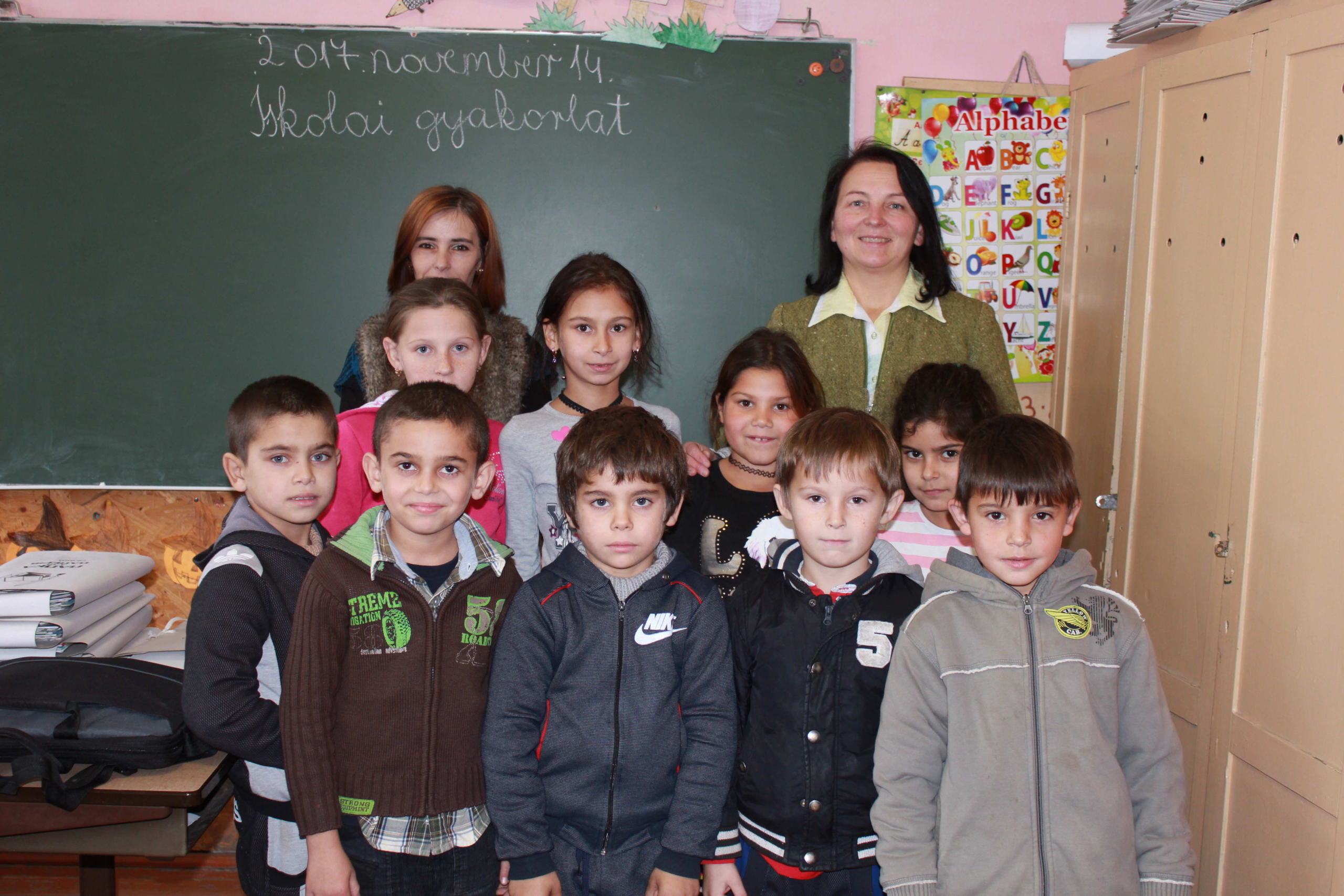
At the entrance to the settlement, where the paved road symbolically runs out to give way to ankle-deep mud, we saw a young Roma woman diligently cleaning the dirt off her knee-high patent leather boots, ready to face the outside world, conscious, I imagine, of the stigma associated with being ‘dirty,’ an insult often thrown at Roma in this part of the world. As we squelched along the waterlogged streets, one of the residents even told me she looked forward to the temperatures dropping below zero in deep winter because, ‘The mud freezes, and the streets are easier to walk.’
The headmistress tells me that out of all of the staff only one of the teachers is Roma, although I also saw a few women from the settlement cleaning the school at the end of the day. One ex-pupil is now studying at university, and the headmistress hopes that she will come back and teach one day, and that eventually there will be more of a balance between Roma and non-Roma staff.
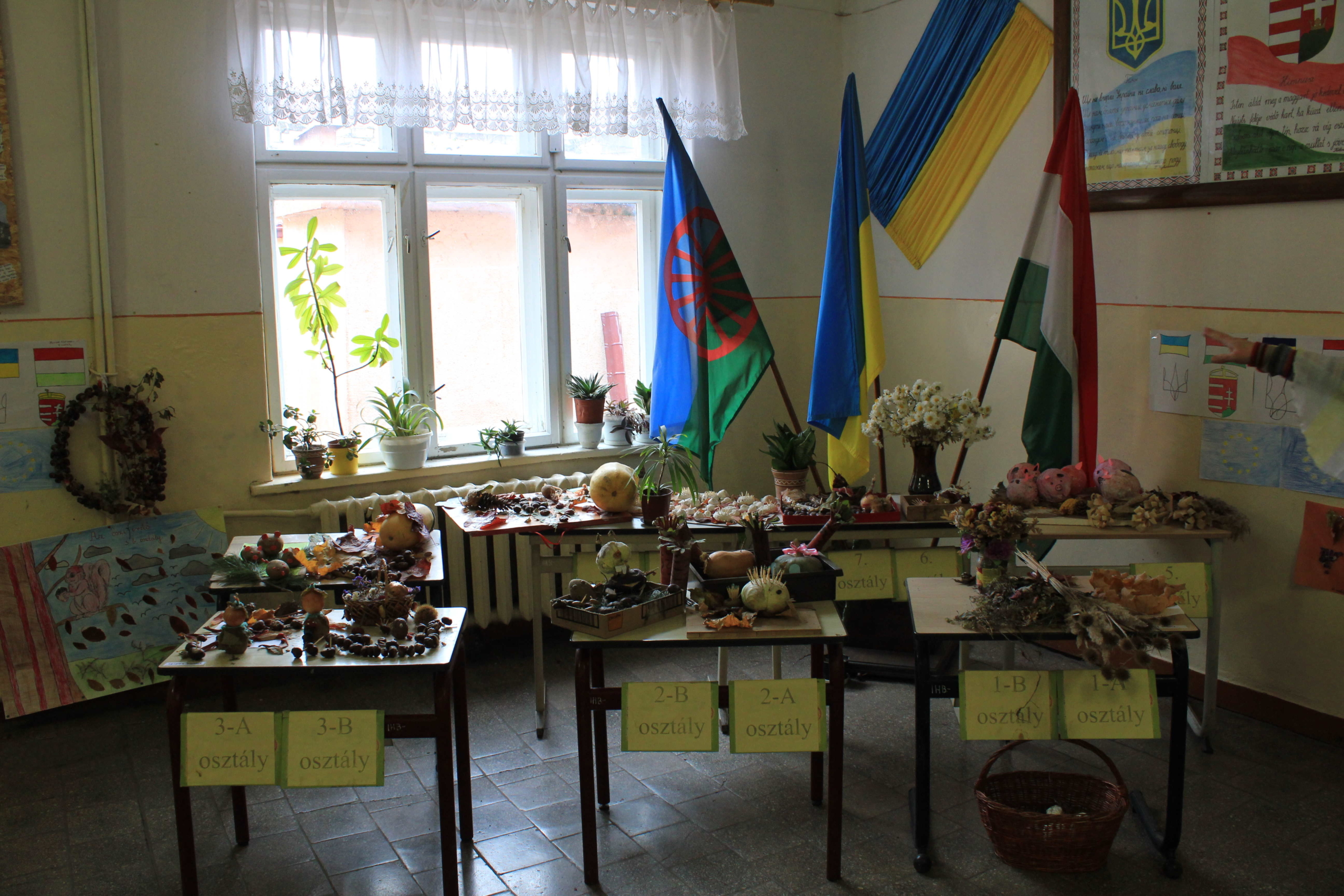
Zola Kondur, who heads up Chirikli, MRG’s partner organization in Ukraine, is adamant that the lack of education of Roma is one of the main factors that exacerbates their already tough situation. She says, ‘It’s obvious. Educated people have more opportunities and chances to have a better life. Unlike many Roma they have their ID documents, can open small businesses and know how to protect and claim their rights.’
Zola says she has visited the school many times when in Berehovo to support the Roma community, particularly when pressuring the local authorities to comply with their responsibility to provide basic amenities in the settlement. She notes the commitment of the headmistress and her staff.
‘For me it shows that the level of education of pupils in a 100 per cent Roma school can be very good. This school shows that the so-called “problem at Roma schools” is not because of the children, but more because of the teachers, and their attitude to their work.’
